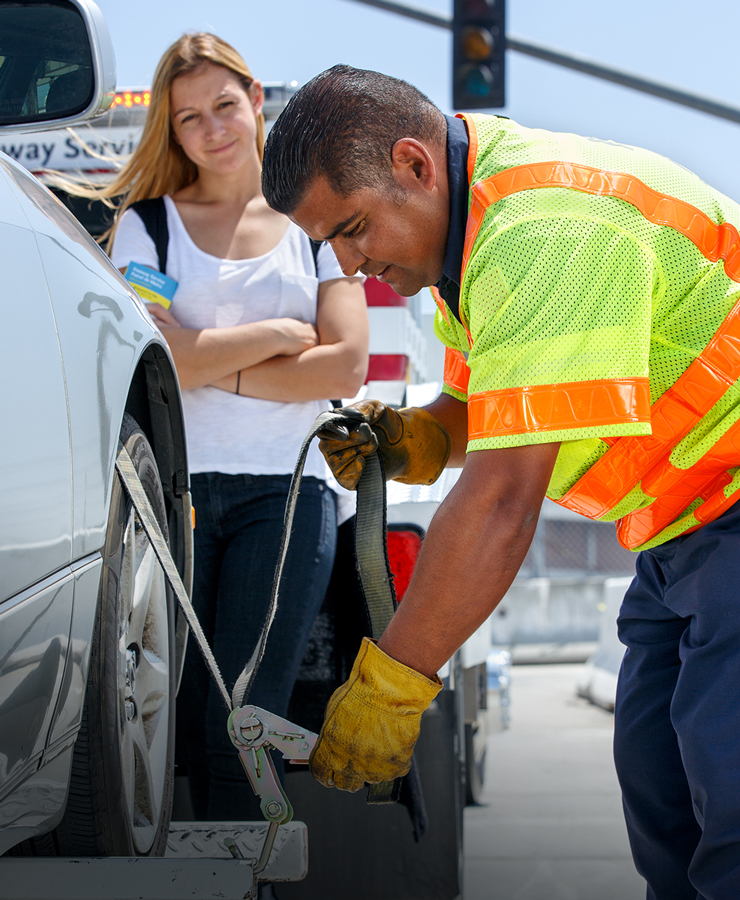Partnership Program Pitches In With a Hitch
Caltrans, CHP Oversee Freeway Service Patrol, Which Assisted Almost 700,000 Motorists in 2018-2019

A Caltrans partnership program that dispatches tow trucks during peak commuter hours to quickly remove disabled or stranded vehicles from congested urban freeways assisted more than 690,000 stranded motorists in fiscal year 2018-2019, helping Caltrans meet its mobility goals by keeping traffic – and the California economy – moving.
The Freeway Service Patrol (FSP) is a joint program administered by Caltrans, the California Highway Patrol (CHP) and local transportation agencies.
Under the program, more than 300 tow trucks keep watch on more than 1,800 miles of freeways for travelers whose vehicles are in distress. Once a disabled or stranded motorist is spotted or reported, tow trucks contracted through the program respond to the scene, offering to change a tire, provide a gallon of gas, refill radiators or tape hoses, or jump-start dead batteries. Towing is provided free to a location approved by the CHP.
The trucks’ drivers are trained, certified and supervised by the CHP.
Rapid removal of freeway obstructions not only saves motorists time, but also reduces fuel consumption and minimizes automobile emissions by reducing the time vehicles spend idling in stopped traffic.
Tow trucks used in the FSP are funded by hourly contracts. They are roving and their drivers do not accept any payment from motorists.
The FSP is a free service to motorists. State and local public funding pay for the program. State funding is apportioned to each FSP program through a funding formula based upon population, miles of freeway in the region, and a measurement of congestion. The local transportation agencies match the state funding allocation with a minimum of 25 percent of local funds.
The patrol received some much-needed assistance through the passage of the Road Repair and Accountability Act of 2017 (Senate Bill 1). The extra $25 million a year in funding about doubled the program budget, stabilizing the delivery of services and allowing for a modest expansion.
The SB 1 funds have added 250 miles of coverage and more than 100,000 hours of tow service since July 2017. More expansion is happening throughout California, with two programs poised to begin in San Luis Obispo and Ventura counties.
The FSP operates in 23 urban counties: El Dorado, Fresno, Los Angeles, Monterey, Orange, Placer, Riverside, Sacramento, San Bernardino, San Diego, San Joaquin, Santa Barbara, Santa Cruz, Yolo and the nine counties of the San Francisco Bay Area.
Source: Caltrans Division of Traffic Operations, California Highway Patrol

